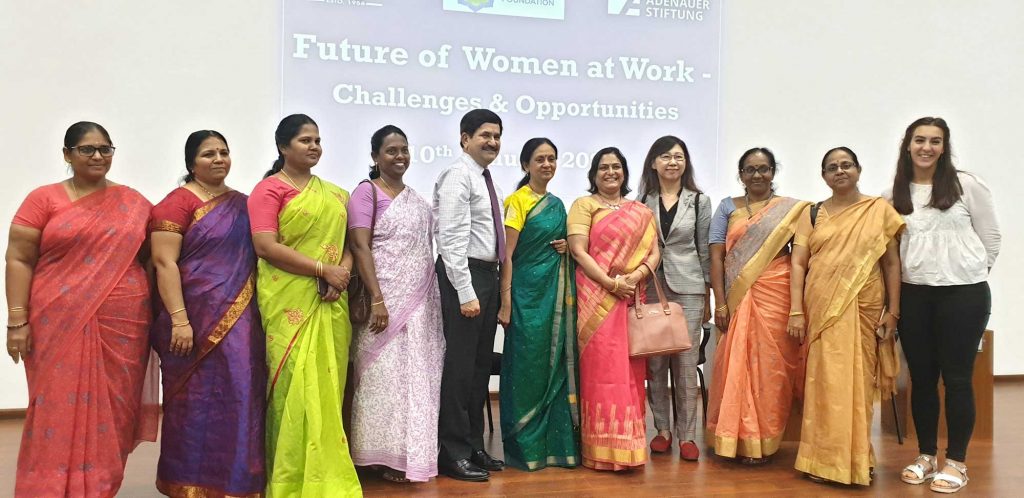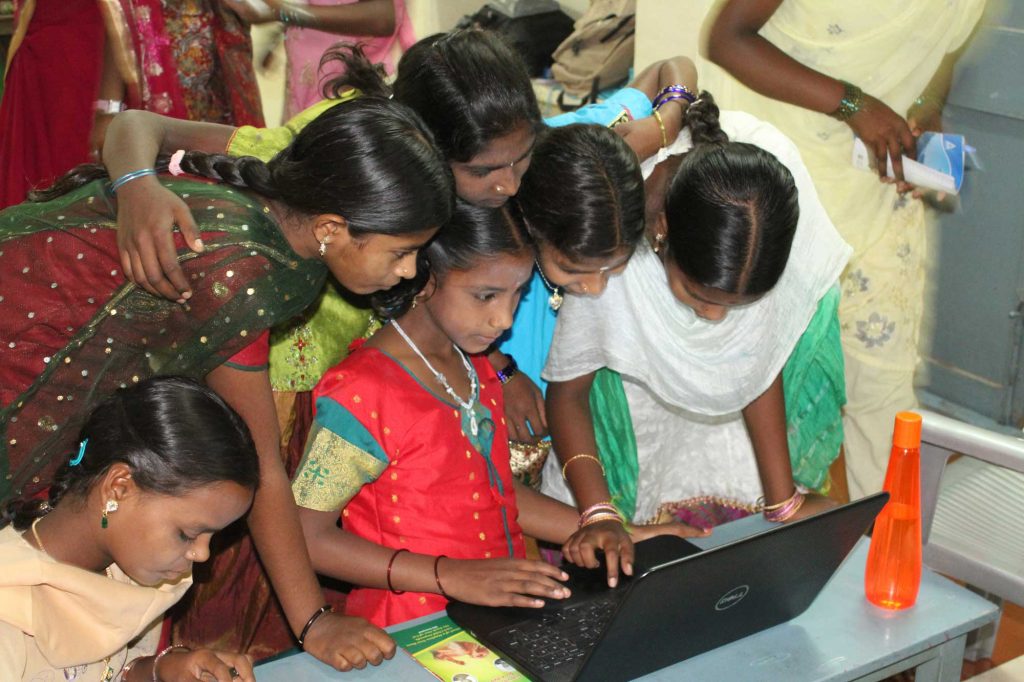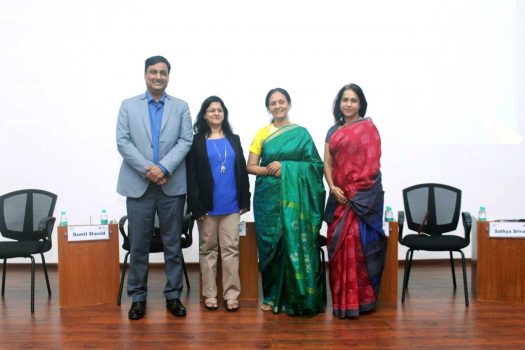In this complex world, overruled by technology, there is a pressing necessity for women to equip themselves with better knowledge and skills to keep up with the shifting times. Team Culturama takes a look at how one can embark upon this subject
 The word ‘female,’ when inserted in front of something, is always with a note of surprise. Female COO, female pilot, female surgeon – as if the gender implies surprise…One day there won’t be female leaders. There will just be leaders – Sheryl Sandberg, Facebook COO and Founder of Leanin.org
The word ‘female,’ when inserted in front of something, is always with a note of surprise. Female COO, female pilot, female surgeon – as if the gender implies surprise…One day there won’t be female leaders. There will just be leaders – Sheryl Sandberg, Facebook COO and Founder of Leanin.org
The longstanding fairy tales will portray women as damsels in distress, stuck inside a tall town, waiting for their charming prince to rescue them from the evil dragon. This image has been a part of everyone’s childhood, inevitably and thus subtly impacting the age-old gender equality struggles. Now imagine a world where there is no Uber, Swiggy, Instagram, PubG, Netflix or Amazon. You cannot? That is because they have now become an essential part of our lives. Whether we like it or not, they are here to stay. This new age of automation is especially challenging to women, who still face discrimination that are often spoken a loud but hardly followed through. So how prepared are we to deal with this automation take-over? According to a recent McKinsey Global Institute report titled ‘The future of women at work: Transitions in the age of automation’, women will face new challenges overlaid on timeworn ones.
Pushing the boundaries
In the United States, this may be within reach for many, but in India there are additional barriers that women need to overcome. From family responsibilities, time factor, restricted mobility, physical security to something as basic as lower access to digital technology, Indian women have to face more challenges to handle this inescapable future of automation. Women not only need to work on increasing their self-esteem but also expand their technological knowledge.
It is a well-known fact today that future technology could dislodge millions from their jobs. Globally, between 40 million and 160 million women may need transition between employments by 2030, mostly into higher skilled roles. But there is no need to hit the panic button. While the older jobs make their way out, new jobs will take their place. And these new seats can be filled only with appropriate learning, especially that concerning AI (Artificial Intelligence) technology.
Rolling with the revolution
Every service available today has been in some way or the other impacted by the steady pace of automation movement. While ride-sharing services were not even a whisper seven years ago, they have now become a billion dollar industry worldwide. Even so, we hardly find women take to driving cabs. Why? Because of security and their insignificant acquaintance with technology. From automobile companies to telecom to even banking industries, automation has become a disruptor. There needs to be newer business models to help organisations transform and acclimatise to the changes from within. Only if these issues are addressed at the grassroots level will they be able to keep up with modern developments.
Steering through this positively will ensure that several women get better paid jobs and contribute to their current employment effectively. For this transition to happen, women will need skills, education and access to technological capabilities that will open up new opportunities for a better economic growth of individuals and the community on the whole.
The future is here
Here is the blatant truth, the future is already happening and we need to act fast. As a result, instead of focusing on the bleak picture that automation will take away their jobs, they have to focus on the need to grow, learn and evolve. In the place of settling for second-line leadership, there needs to be the in-built need to be in the line of fire. The chances they receive and the choices they make on their hopes, rather than on their fears, are what will determine their time ahead.
So how can men play their part? Just support. It is that simple. Sharing the work load at home, to giving the women a platform to be part of the change is important to bring in gender equality. The holistic support that men will provide women not just privately but professionally as well could reformulate how they can progress successfully.
Of course, there is no denying that this dependence on automation will have its own side effects, but like everything else, the development must take place to build a better tomorrow. It is time that women move further away from fairy tales and get ready to take the swords themselves to slay the dragons. This social-cultural change, along with the need to outshine, can redefine aspiration, thus making for themselves a secure future.
 Excerpts from a panel discussion on Future of Women at work – challenges and opportunities organised by Madras Management Association and Konrad Adenauer Stiftung. Ranjini Manian, Founder Chairperson, Global Adjustments Foundation, moderated the distinguished panellists comprising Sathya Sriram, Director of Strategic Initiatives, McKinsey & Company, Sheetal Rajani, Lead-Diversity and Inclusion & Agile Champion, Tata Consultancy Services, and Sunil David, Regional Director-IOT, India and ASEAN AT&T Global Network Services India Pvt Ltd.
Excerpts from a panel discussion on Future of Women at work – challenges and opportunities organised by Madras Management Association and Konrad Adenauer Stiftung. Ranjini Manian, Founder Chairperson, Global Adjustments Foundation, moderated the distinguished panellists comprising Sathya Sriram, Director of Strategic Initiatives, McKinsey & Company, Sheetal Rajani, Lead-Diversity and Inclusion & Agile Champion, Tata Consultancy Services, and Sunil David, Regional Director-IOT, India and ASEAN AT&T Global Network Services India Pvt Ltd.
Check out this link to watch the panel discussion – www.liveibc.com/mma
For Women’s Life Leadership Programme by Global Adjustments Foundation, see page 12
